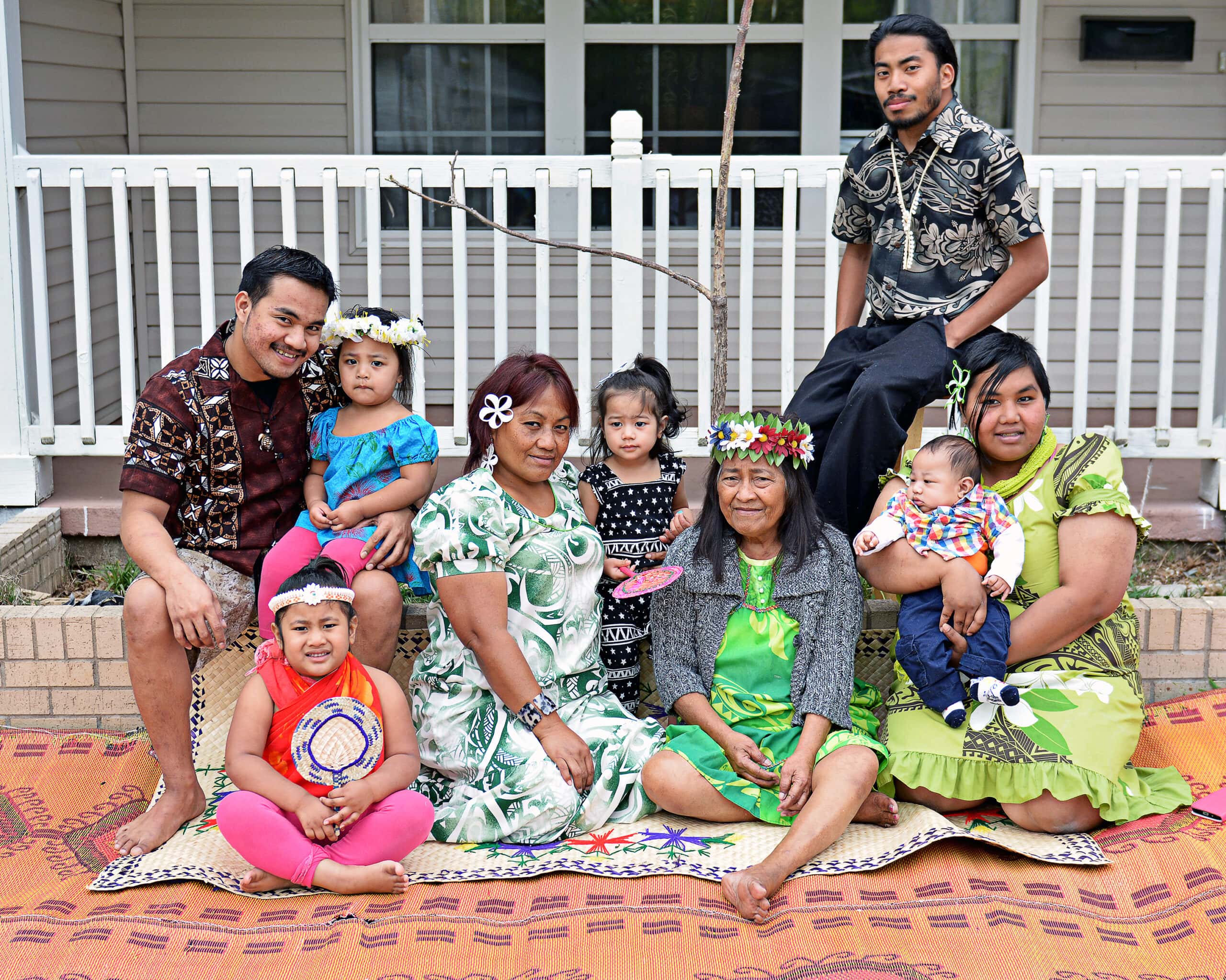Marshallese Resilience throughout COVID-19 Pandemic Featured in New Book
| SPRINGDALE — Research conducted by the University of Arkansas for Medical Sciences (UAMS) Office of Community Health & Research into the resilience and adaptability of Marshallese populations throughout the COVID-19 pandemic has been featured in a new book published by the Modern Literature & Culture Research Centre.
The book, Creative Resilience and COVID-19, explores how people around the world adapted to drastic changes to their daily lives as a result of the pandemic. UAMS Community Health & Research faculty provided a chapter to the book, “It’s Like Not a Very Marshallese Way of Life,” which explores Marshallese experiences during the pandemic and the creative resilience practiced by the community responding to the hardships and tragedy of the COVID-19 pandemic.
Marshallese cultural values emphasize family and community, including food sharing and community interaction. “It’s Like Not a Very Marshallese Way of Life” explores how the COVID-19 pandemic and such public health protections as social distancing led to Marshallese community members using other means of communication to maintain their sense of community. The findings included in the chapter were derived from focus groups that included participants from Arkansas, Oklahoma and Hawaii, and detail both the disruptions and the community response supporting social cohesion.
“Not only did the Marshallese community experience a higher-than-average death rate from the coronavirus pandemic, but it also radically affected their way of life,” said Ramey Moore, Ph.D., an assistant professor in the UAMS Office of Community Health & Research. “Despite those effects, this chapter highlights how the Marshallese community was able to adapt to COVID-19 precautions and maintain culturally-significant family relationships through the use of technology and other creative outlets.”
During the summer of 2020, the Centers for Disease Control & Prevention and the National Institutes of Health found that the Marshallese population comprised 17% of all COVID-19 infections in Northwest Arkansas, despite making up less than 3% of the total population. The Marshallese also accounted for 14% of all COVID-19-related hospitalizations in the area and suffered 372.4 deaths per 100,000 people, compared to the regional average of 5.10 per 100,000.
“The COVID-19 pandemic hit and shocked us and changed us forever,” said Melisa Laelan, founder and chief executive director of the Arkansas Coalition of Marshallese. “I remember seeing the report on the first few deaths in Northwest Arkansas, and the majority of them were from the Marshallese community. I knew them. They were frequent visitors to our office, and we knew them by name. The personal connection to the pandemic was definitely close to us in the community.”
Through the COVID CARES Act, UAMS worked with partners throughout the state to provide comprehensive education, contact tracing and resources to Marshallese and Hispanic communities, providing case navigation for more than 10,000 Marshallese and Hispanic residents.
“We learned during this study that while the pandemic took a toll on everyone over the last two years, the Marshallese community was uniquely impacted, due to economic and social disparities, and partly because of their cultural practices surrounding celebrations, food and family,” Moore said. “But the community has also shown incredible resilience and creativity, using technology and telecommunications to connect with one another when public health protections and cautionary measures prevented them from physically being with one another.”
As of May 7, the Arkansas Department of Health (ADH) has reported more than 11,408 deaths from COVID-19. About 56% of the state’s eligible population is fully immunized. According to the ADH, more than 80% of the state’s COVID-19 hospitalizations since last February are among unvaccinated patients.
Creative Resilience and COVID-19 can be purchased here. For information about COVID-19 testing and vaccinations in Northwest Arkansas, visit nwa.uams.edu/covid.
UAMS is the state’s only health sciences university, with colleges of Medicine, Nursing, Pharmacy, Health Professions and Public Health; a graduate school; a hospital; a main campus in Little Rock; a Northwest Arkansas regional campus in Fayetteville; a statewide network of regional campuses; and seven institutes: the Winthrop P. Rockefeller Cancer Institute, Jackson T. Stephens Spine & Neurosciences Institute, Harvey & Bernice Jones Eye Institute, Psychiatric Research Institute, Donald W. Reynolds Institute on Aging, Translational Research Institute and Institute for Digital Health & Innovation. UAMS includes UAMS Health, a statewide health system that encompasses all of UAMS’ clinical enterprise. UAMS is the only adult Level 1 trauma center in the state. U.S. News & World Report recognized UAMS Medical Center as a Best Hospital for 2021-22; ranked its ear, nose and throat program among the top 50 nationwide for the third year; and named five areas as high performing — colon cancer surgery, diabetes, hip replacement, knee replacement and stroke. UAMS has 3,047 students, 873 medical residents and fellows, and six dental residents. It is the state’s largest public employer with more than 11,000 employees, including 1,200 physicians who provide care to patients at UAMS, its regional campuses, Arkansas Children’s, the VA Medical Center and Baptist Health. Visit www.uams.edu or www.uamshealth.com. Find us on Facebook, Twitter, YouTube or Instagram.
The UAMS Northwest Regional Campus includes 288 medical, pharmacy, nursing and health professions students, 64 medical and pharmacy residents, two sports medicine fellows, and 1,000 community-based faculty. The campus has nine clinics including a student-led clinic and physical, occupational and speech therapy. Faculty conduct research to reduce health disparities. Visit www.uams.edu or www.uamshealth.com. Find us on Facebook, Twitter, YouTube or Instagram.
